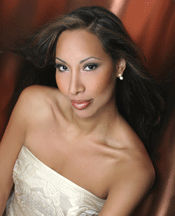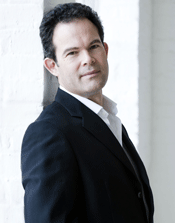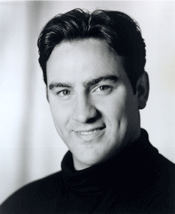Recently in Reviews
English Touring Opera are delighted to announce a season of lyric monodramas to tour nationally from October to December. The season features music for solo singer and piano by Argento, Britten, Tippett and Shostakovich with a bold and inventive approach to making opera during social distancing.
This tenth of ten Live from London concerts was in fact a recorded live performance from California. It was no less enjoyable for that, and it was also uplifting to learn that this wasn’t in fact the ‘last’ LfL event that we will be able to enjoy, courtesy of VOCES8 and their fellow vocal ensembles (more below …).
Ever since Wigmore Hall announced their superb series of autumn concerts, all streamed live and available free of charge, I’d been looking forward to this song recital by Ian Bostridge and Imogen Cooper.
The Sixteen continues its exploration of Henry Purcell’s Welcome Songs for Charles II. As with Robert King’s pioneering Purcell series begun over thirty years ago for Hyperion, Harry Christophers is recording two Welcome Songs per disc.
Although Stile Antico’s programme article for their Live from London recital introduced their selection from the many treasures of the English Renaissance in the context of the theological debates and upheavals of the Tudor and Elizabethan years, their performance was more evocative of private chamber music than of public liturgy.
In February this year, Albanian soprano Ermonela Jaho made a highly lauded debut recital at Wigmore Hall - a concert which both celebrated Opera Rara’s 50th anniversary and honoured the career of the Italian soprano Rosina Storchio (1872-1945), the star of verismo who created the title roles in Leoncavallo’s La bohème and Zazà, Mascagni’s Lodoletta and Puccini’s Madama Butterfly.
Evidently, face masks don’t stifle appreciative “Bravo!”s. And, reducing audience numbers doesn’t lower the volume of such acclamations. For, the audience at Wigmore Hall gave soprano Elizabeth Llewellyn and pianist Simon Lepper a greatly deserved warm reception and hearty response following this lunchtime recital of late-Romantic song.
Collapsology. Or, perhaps we should use the French word ‘Collapsologie’ because this is a transdisciplinary idea pretty much advocated by a series of French theorists - and apparently, mostly French theorists. It in essence focuses on the imminent collapse of modern society and all its layers - a series of escalating crises on a global scale: environmental, economic, geopolitical, governmental; the list is extensive.
For this week’s Live from London vocal recital we moved from the home of VOCES8, St Anne and St Agnes in the City of London, to Kings Place, where The Sixteen - who have been associate artists at the venue for some time - presented a programme of music and words bound together by the theme of ‘reflection’.
'Such is your divine Disposation that both you excellently understand, and royally entertaine the Exercise of Musicke.’
Amongst an avalanche of new Mahler recordings appearing at the moment (Das Lied von der Erde seems to be the most favoured, with three) this 1991 Mahler Second from the 2nd Kassel MahlerFest is one of the more interesting releases.
‘And there was war in heaven: Michael and his angels fought against the dragon; and the dragon fought and his angels, And prevailed not; neither was their place found any more in heaven … that old serpent … Satan, which deceiveth the whole world: he was cast out into the earth, and his angels were cast out with him.’
If there is one myth, it seems believed by some people today, that probably needs shattering it is that post-war recordings or performances of Wagner operas were always of exceptional quality. This 1949 Hamburg Tristan und Isolde is one of those recordings - though quite who is to blame for its many problems takes quite some unearthing.
There was never any doubt that the fifth of the twelve Met Stars Live in Concert broadcasts was going to be a palpably intense and vivid event, as well as a musically stunning and theatrically enervating experience.
‘Love’ was the theme for this Live from London performance by Apollo5. Given the complexity and diversity of that human emotion, and Apollo5’s reputation for versatility and diverse repertoire, ranging from Renaissance choral music to jazz, from contemporary classical works to popular song, it was no surprise that their programme spanned 500 years and several musical styles.
The Academy of St Martin in the Fields have titled their autumn series of eight concerts - which are taking place at 5pm and 7.30pm on two Saturdays each month at their home venue in Trafalgar Square, and being filmed for streaming the following Thursday - ‘re:connect’.
The London Symphony Orchestra opened their Autumn 2020 season with a homage to Oliver Knussen, who died at the age of 66 in July 2018. The programme traced a national musical lineage through the twentieth century, from Britten to Knussen, on to Mark-Anthony Turnage, and entwining the LSO and Rattle too.
With the Live from London digital vocal festival entering the second half of the series, the festival’s host, VOCES8, returned to their home at St Annes and St Agnes in the City of London to present a sequence of ‘Choral Dances’ - vocal music inspired by dance, embracing diverse genres from the Renaissance madrigal to swing jazz.
Just a few unison string wriggles from the opening of Mozart’s overture to Le nozze di Figaro are enough to make any opera-lover perch on the edge of their seat, in excited anticipation of the drama in music to come, so there could be no other curtain-raiser for this Gala Concert at the Royal Opera House, the latest instalment from ‘their House’ to ‘our houses’.
"Before the ending of the day, creator of all things, we pray that, with your accustomed mercy, you may watch over us."
Reviews

07 Oct 2010
Bizet Les Pêcheurs de Perles - Royal Opera House
Bizet’s Les Pêcheurs de Perles is notoriously hard to stage. Because the plot’s so grandiose, the imagination works overtime, dwarfing the music, making it seem puny in comparison. There’s a lot to be said in favour of concert performances because they shift the balance back to Bizet.
What was striking in this performance of Les Pêcheurs de Perles (Pearl Fishers) at the Royal Opera House was how delicate much of Bizet’s writing really is. It doesn’t jump up and grab you like the tunes from Carmen. Bizet knew little about India or Indian music but in his imagination, the exoticism signaled refinement. A petit Trianon East, perhaps, charming, but as authentic as 18th century “oriental” wallpaper. Since we nowadays know more of the reality, which affects our response to Bizet’s watercolours.
Dispense with the “orientalism” and think of Les Pêcheurs de Perles as French fantasy, and the opera falls into perspective. Kings and Priests dominate because peasants are superstitious, and think Holy Virgins will protect them. When the chorus sings of Brahma they could as easily be singing of Jesus. Getting away from literal images allows the music to make sense on its own terms.
 Gerald Finley
Gerald Finley
Antonio Pappano was wise to let this music breathe. Over-expansive gestures are best left to the histrionic narrative. Bizet imagines India in delicate, refined string textures, flute trills and gently beaten cymbals. Crescendi build up like swells in the ocean, diminuendos evoking refinement and submission. Lovely bell-like miniatures throughout evoking an idea of the East as perfumed and flower strewn as a church in France on a holy day. There’s more drama in this music than the opera is given credit for. Pappano elucidates what’s there, without pushing it past its limits. The delicacy of the playing let themes, such as those from the “big number”, resurface elusively throughout the opera, sometimes so subtle they can be overpowered by being made too obvious..
The Royal Opera House orchestra deserve more appreciation than they get, so it was good to see them on stage rather than hidden in the pit. Seeing the bare structure of the stage was instructive, too, a reminder of just how much art goes into making the fantasy of opera.
 John Osborne
John Osborne
Leila is a part almost tailor-made for Nicola Cabell. She’s exquisite, and swathed in sapphire satin creates a character even before she sings. Pretty singing too., but the role, despite its charm doesn’t lend itself to great displays of passion. John Osborne’s Nadir was assertive and lucidly clear in the true French manner. His aria “Je crois entendre encore”, was beautifully shaped and balanced, the orchestra poised around it nicely, so it did feel “caché sous les palmiers.”
The duet “Au fond du temple saint” was very well realized by Osborne and Gerald Finley. Finley was by far the biggest name in the ensemble, however good Osborne, Cabell and Raymond Aceto’s Nourabad could be. More darkness would work better with Zurga, who is a very troubled man indeed, but Finley’s singing is so well modulated that he creates authenticity without much apparent effort.
Anne Ozorio


